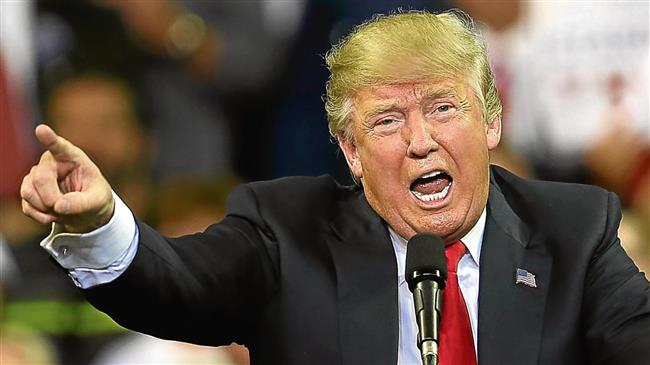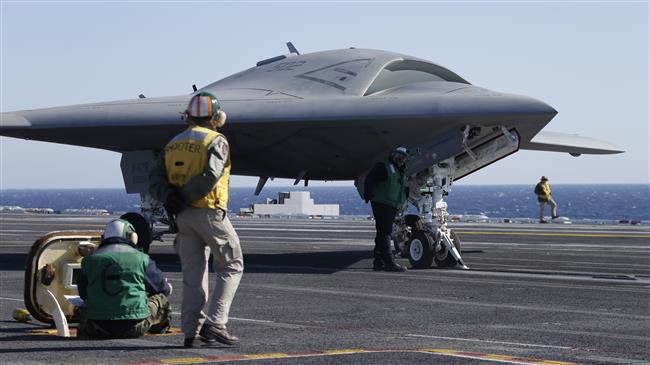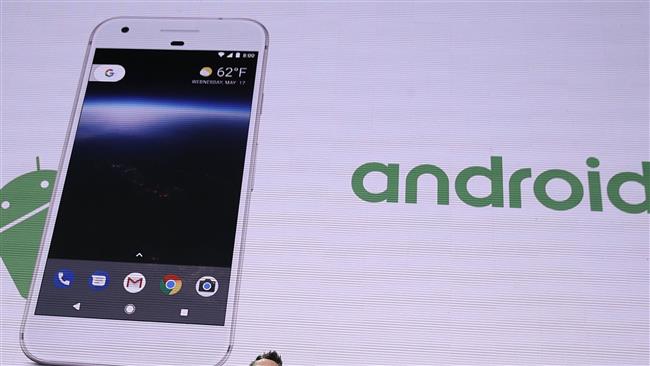Trump authorizes launching 'offensive' against enemy hackers: Bolton
US President Donald Trump has authorized the use of “offensive” cyber operations to target foreign hackers, according to White House National Security Adviser John Bolton.
Bolton told media on Thursday that the new National Cyber Strategy will help to protect US infrastructure, government bureaucracies, businesses and elections, which were under constant attack, by enemies of the US.

"Americans and our allies are under attack every day in cyberspace," Bolton claimed. "We will respond offensively as well as defensively," he said, adding, "Our adversaries need to know that."
"It is in our national interest to do that not because we want more offensive operations in cyber space, but precisely to create the structures of deterrence that will demonstrate to adversaries that the cost of their engaging in operations against us is higher than they want to bear," he said.
The new presidential directive, scheduled for Tuesday, will change the rules set by the Barack Obama administration for cyber activity, Bolton said.
Bolton did not specify what kinds of operations or which enemies would be targeted– it's classified, he said – but added that the goal is to deter cyber attacks.
He noted, however, that the offensive would not be limited in cyberspace and would be extended to outside as well.
The new directive is aimed to complement an earlier national security planning document released by the White House in December, Bolton said, which focuses on four "pillars": protecting the homeland, promoting American prosperity, advancing American influence and achieving "peace through strength."
Media said the Trump National Cyber Strategy directive aims to push federal agencies to work with state and local governments to shore up government systems, and to coordinate with private-sector companies, to give the military greater autonomy to conduct cyber warfare.
The most publicized cyber incident is a hacking which was allegedly carried out by Russian military agents on US Democrat figures' email accounts just before the 2016 elections, in which Republican Trump took a surprise win against the heavily favored Hillary Clinton.
The Obama directive– which was classified, but became public because of leaks by former intelligence contractor Edward Snowden – required the military to consult with the State Department, intelligence community, and other agencies before launching a cyber attack. One reason was to make sure a cyber attack did not interfere with intelligence-gathering operations as revealed by the whistle-blower Snowden.
During his tenure at NSA, Snowden downloaded tens of thousands of classified top secret US documents and then published them. The documents exposed the huge extent of US spying across the world.
Snowden revealed that US spy agencies gathered information from friends and foes alike, dealing a heavy blow to the US government, causing it an international scandal..
‘Ghost town’: 70% of Jabalia buildings destroyed by Israel
Mother’s Day: Sareh Javanmardi’s inspiring journey as Paralympic champion and mother
Russia downs over 40 Ukrainian drones as Putin vows 'destruction' on Kiev
VIDEO | Yemen: A bone in Israeli neck
D-8’s role in Iran’s economy after Cairo summit
China slams US as ‘war-addicted’ threat to global security
China ‘firmly opposes’ US military aid to Taiwan
VIDEO | Press TV's News Headlines














 This makes it easy to access the Press TV website
This makes it easy to access the Press TV website